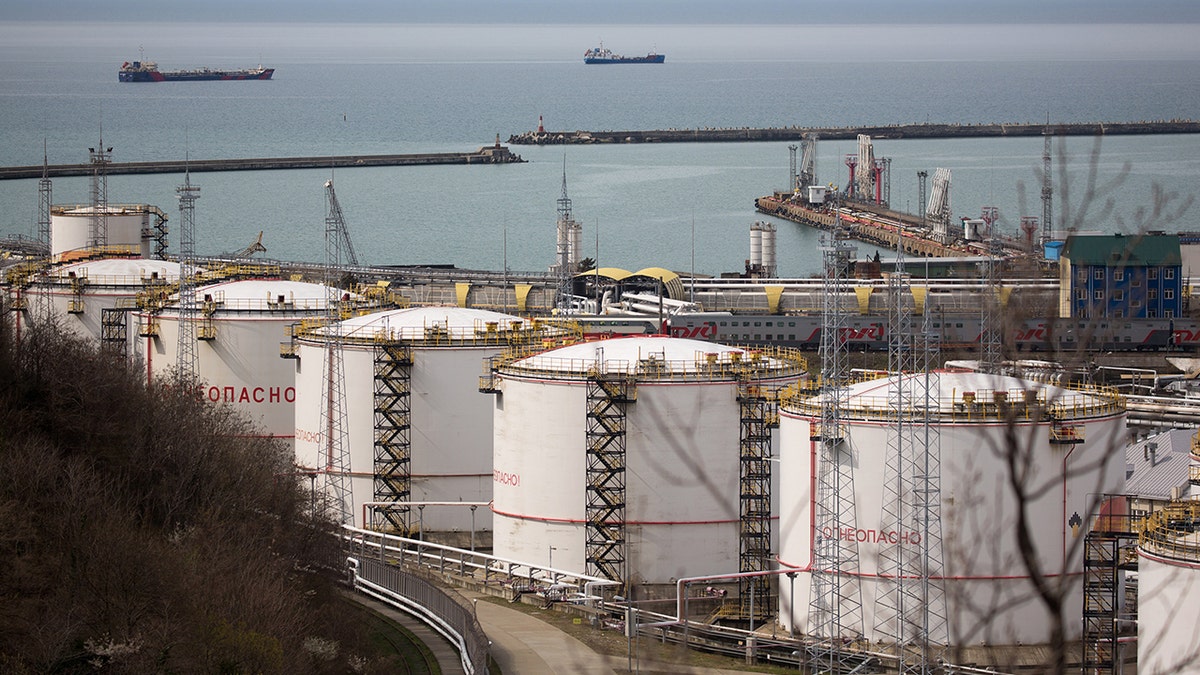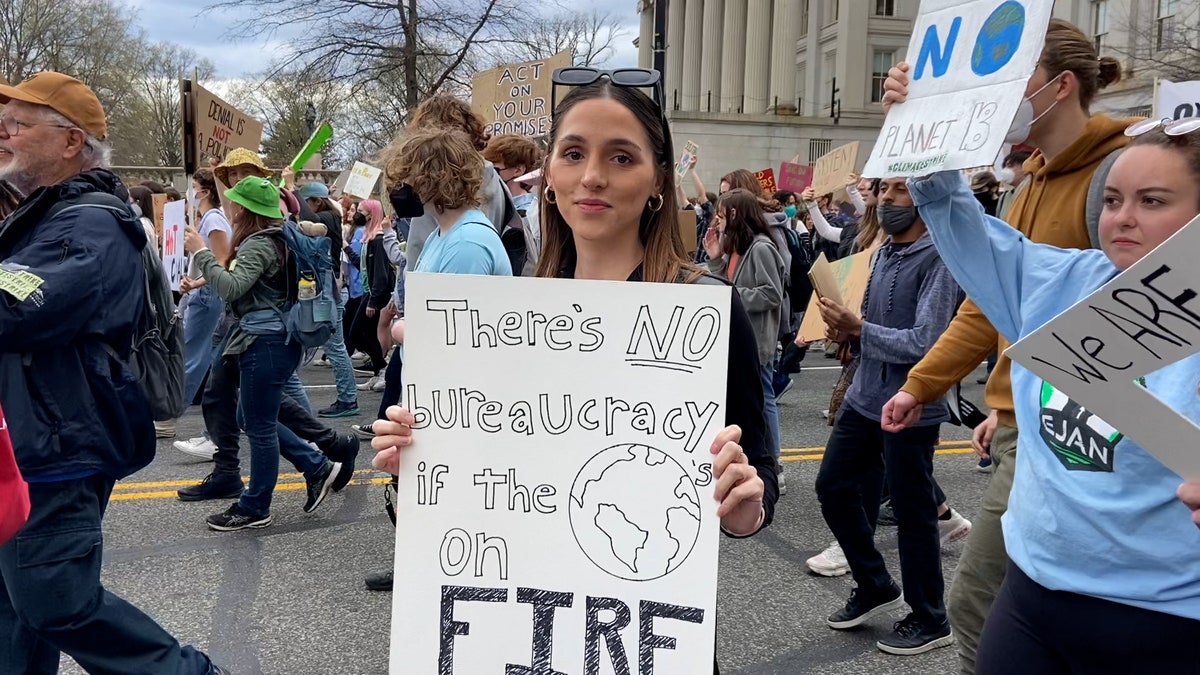'The View' hosts slam Joe Manchin on climate change
"The View" hosts criticized Sen. Joe Manchin on Tuesday while discussing climate change and Joy Behar said that lawmakers are "waiting for the Eiffel Tower to melt."
Discussion of climate change may seem abstract or theoretical, but here in the Puget Sound region we are already feeling its effects. We see climate change in the increasing and intensifying wildfires, storms, heat waves, and other natural disasters that continue to become more deadly, displace more people, and expose more communities to harmful environmental and health hazards. Around the world, climate change is a major driver of displacement, famine, and conflict. If left unaddressed, these effects are only going to become more costly and deadly.
Climate change represents the existential threat of our time and thinking about the sheer scope of the challenge can be terrifying. But the solution — transitioning off fossil fuels — presents an enormous opportunity for our country and our world. It’s not all doom and gloom.
Moving to a clean energy economy can address some of the most-pressing issues facing individuals and families right now like health and wellbeing, energy costs, inflation, and economic opportunity.
BIDEN SAYS HE WILL TAKE EXECUTIVE ACTION TO ADDRESS CLIMATE CHANGE SHOULD CONGRESS FAIL TO ACT
Fossil fuels have harmful effects on environmental health and wellbeing, which we have known about for years. Pollution from fossil fuels — whether from cars and trucks, gas furnaces and stoves, or manufacturing and industrial sites — negatively impacts public health, especially children and the most vulnerable members of our society. Transitioning to a clean-energy economy would drastically reduce harmful pollution and create cleaner, healthier communities.

Oil storage tanks stand at the RN-Tuapsinsky refinery, operated by Rosneft Oil Co., as tankers sail beyond in Tuapse, Russia, on Monday, March 23, 2020. Photographer: Andrey Rudakov/Bloomberg via Getty Images (Photographer: Andrey Rudakov/Bloomberg via Getty Images)
A system reliant on fossil fuels also has consequences for consumers and their pocketbooks. Russia’s invasion of Ukraine and the global rise in oil and gas prices illustrates the volatility of the fossil fuel market and the impact it has at the pump. The increase in fuel costs is one of the primary drivers of inflation. As consumers get squeezed with rising costs from inflation and higher fuel prices, oil companies have made record profits during this crisis. All the while, the oil industry and its allies have shamelessly called for an increase in domestic oil production, which is a false solution.
Oil and gas production in the U.S. has been at an all-time high in recent years and the Biden-Harris administration approved more drilling permits per month than President Donald Trump did in any of his first three years in office. No matter how much fossil fuel energy we produce domestically, U.S. consumers will always be subject to price hikes based on what’s happening in the global market.
The only way to be truly energy independent is to build an American economy no longer dependent on fossil fuels.
A renewable and clean energy economy would help combat inflation and bring more affordable, stable energy to consumers, insulating folks from the volatility we see today in the price of gas, utilities, and everyday goods. Reducing our reliance on fossil fuels will remove a huge point of economic and political leverage that oil-rich autocratic leaders in Russia, Iran, and Saudi Arabia wield to their benefit. That means our transition to a clean-energy economy isn’t just smart domestic policy, it is also a matter of national security.
Senator Joe Manchin, D-WV, reportedly wants to wait until September, when July’s inflation numbers are released, to decide how to proceed on climate provisions in a reconciliation legislative package. Like Manchin, folks around the country are worried about the price of gas and higher costs for everyday goods. I’m worried about rising prices too.
But that is exactly why we need to keep making the case that a clean energy economy can help address the challenges we face — including inflation.
We aren’t going to convince skeptics if we only talk about the existential threat of climate change. We must focus on the opportunity in front of us. An economy that runs on renewable and clean energy will improve people’s health and wellbeing; reduce energy costs for consumers; minimize drastic energy price swings; create good paying jobs; and promote national security and global stability.
Congressional Democrats and the Biden-Harris administration have made clear our commitment to combating climate change. It’s been at the forefront of executive actions from day one of this administration, and it was a pillar of the Build Back Better Act that passed in the House last year.

Climate activist holds "there's no bureaucracy if the world is on fire" sign as she marches towards the U.S. Capitol (Fox News Digital)
But legislative days are quickly running out and we face hard choices. If an agreement on climate provisions can be reached with Manchin, the choice is clear.
CLICK HERE TO GET THE OPINION NEWSLETTER
Congress must not squander our best opportunity to take significant climate action during Biden’s first term — it’s time to move a reconciliation bill that puts the country on a path toward net-zero emissions and to decarbonize every sector of the economy.
If we can successfully include other priorities — such as prescription drug pricing reform — then we should, but passage of a major climate bill is going to require members of Congress to make concessions on unresolved, non-climate related priorities and fight those battles separately. This is of course not the ideal outcome, but it is the prioritization necessary to push through a climate package that will truly catalyze our clean energy future.
CLICK HERE TO GET THE FOX NEWS APP
If an agreement can ultimately be reached with Manchin on investments in climate and clean energy, we cannot let the perfect be the enemy of the good. Our collective success will require all of us who take climate change seriously to convince the American people, especially skeptics, that passing an aggressive clean energy package is an opportunity to not only tackle climate change, but also address some of the pain points that Americans across the country are feeling right now. It’s on us, and the time is now.











































